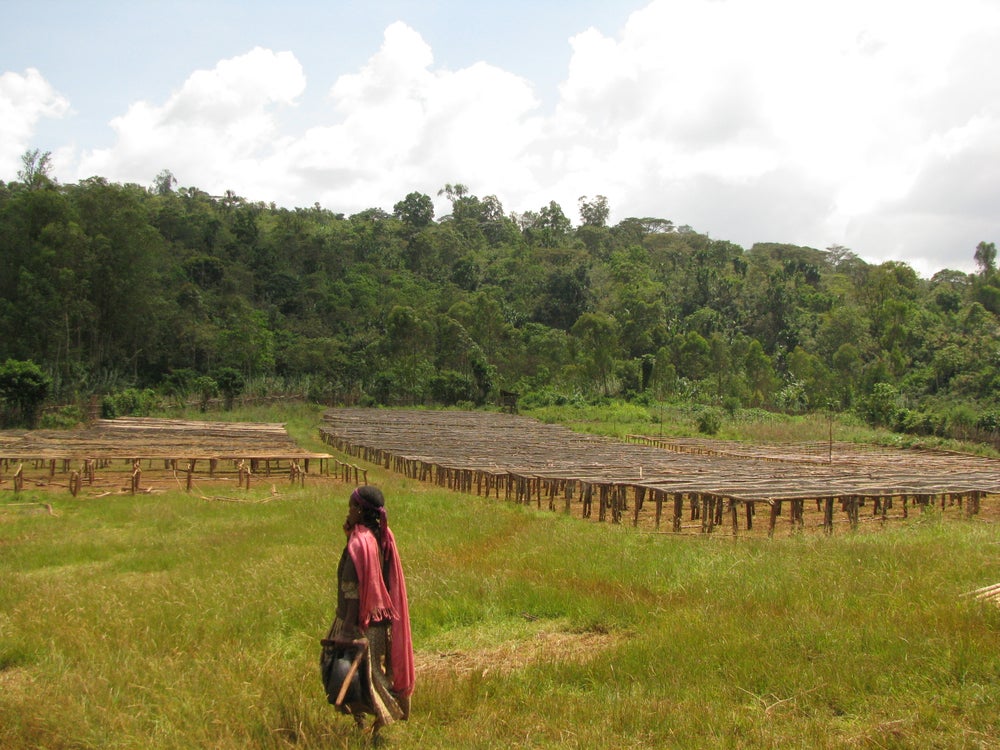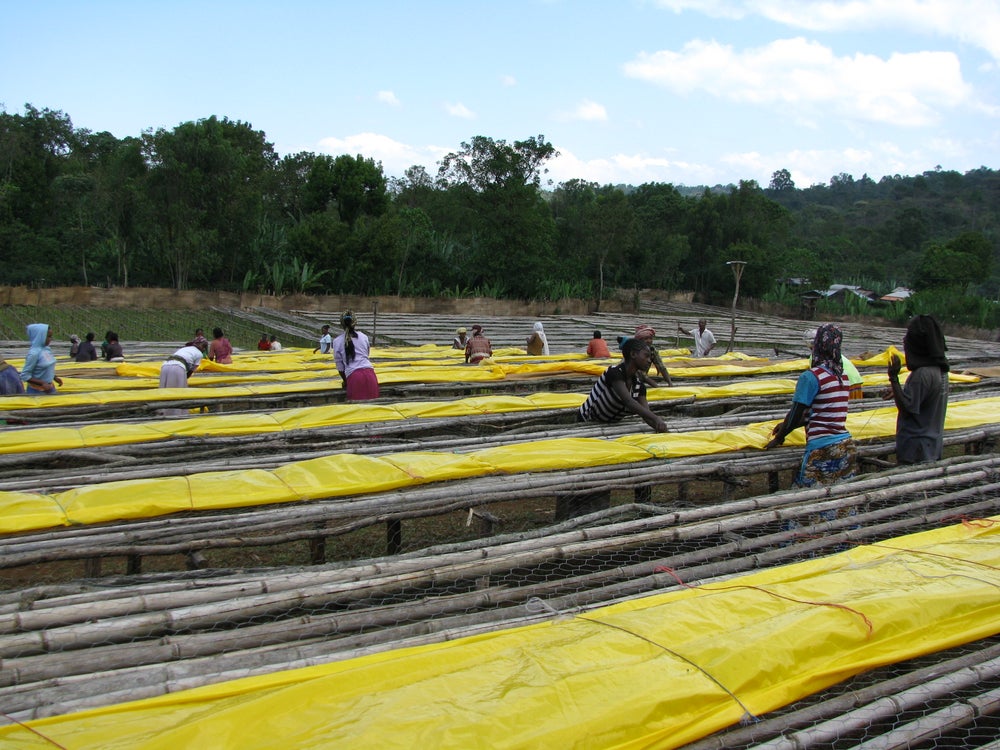About This Coffee
Owned by Negusse Debela, Refisa washing station in Nensebo, Sidamo produces coffees that live up to Sidamo’s reputation for producing a clean, sweet and floral cup.
Cultivation
Farmers also cultivate teff, false banana and corn.
Harvest & Post-Harvest
Farmers hand harvest cherry and deliver it to Refisa washing station. At intake, cherry is visually sorted and then pulped in the station’s disc pulper. Coffee is fermented and then washed in clean water. Workers lay the parchment on raised beds. Parchment is raked frequently to ensure even drying. It takes approximately 8 to 10 days for parchment to dry.
Coffee in Ethiopia
While Ethiopia is famous as coffee’s birthplace, today it remains a specialty coffee industry darling for its incredible variety of flavors. While full traceability has been difficult in recent history, new regulations have made direct purchasing possible. We’re partnering directly with farmers to help them produce top quality specialty lots that are now completely traceable, adding value for farmers and roasters, alike.
The exceptional quality of Ethiopian coffee is due to a combination of factors. The genetic diversity of coffee varieties means that we find a diversity of flavor, even between (or within) farms with similar growing conditions and processing. In addition to varieties, processing methods also contribute to end quality. The final key ingredients for excellent coffee in Ethiopia are the producing traditions that have created the genetic diversity, processing infrastructure and great coffee we enjoy today.
Most producers in Ethiopia are smallholders, and the majority continue to cultivate coffee using traditional methods. As a result, most coffee is grown with no chemical fertilizer or pesticide use. Coffee is almost entirely cultivated, harvested and dried using manual systems.

